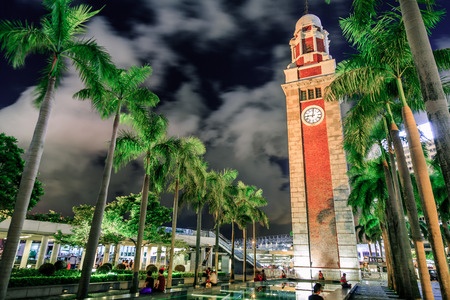18 July, 2017
As more investment in China’s Belt and Road initiative begins to come online, Hong Kong is well poised to take advantage of its position as a “key link” and “super-connector” for the modern maritime silk road.
One of the areas in which we foresee significant growth for Hong Kong is in the area of dispute resolution services. The Belt and Road initiative is seeing outbound Chinese investment into very significant maritime and transport, energy, infrastructure and finance contracts in a number of different countries across the silk road economic belt. As part of their negotiations, contracting parties must consider in what forum they wish to litigate in the event that future disputes arise.
The typical choices we see for governing law and forum clauses are litigation or arbitration in the home country of either contracting party; English, Singapore, or Hong Kong arbitration; or (less commonly) the law and Courts of the place where the project is to be undertaken. The first option can create a perception of home town advantage for one of the parties. Equally, the last option of the Courts of the place of performance can in some cases expose the parties to an unnecessary degree of political risk and legal uncertainty. Arbitration in a neutral seat is often, therefore, the preferred choice.
Why is Hong Kong so well placed to arbitrate Belt and Road disputes?
First, and most importantly, Hong Kong enjoys a stable, robust, and independent legal system. Although part of China, Hong Kong operates a common law system that is strongly influenced by English law, with which many Belt and Road contracting entities will already be familiar. This offers certainty and predictability. This independence was demonstrated in two recent cases:
(1) the decision of the Court of Final Appeal in CSAV v Hin-Pro [2016] HKCFA 79 (at Stephenson Harwood case); and (2) TNB v CNCG [2017] HKCFI 1016 (see below).
Second, Hong Kong is geographically proximate to China, with good transport connections by air and sea to the rest of Asia.
Third and with specific reference to arbitration, Hong Kong has an existing pool of highly qualified and often bi-lingual (in English and Chinese) professionals from which to draw expertise – including lawyers, arbitrators, expert witnesses, accountants, finance and construction and engineering professionals.
Ad hoc as well as institutional arbitration is available in Hong Kong. There are a number of arbitral institutions with branches in the city, including the HKIAC and CIETAC. Dispute resolution consumers therefore have a great deal of choice in and control over arbitral proceedings in Hong Kong. Hong Kong is a signatory to and applies the New York Convention1 , meaning that an arbitration award obtained in Hong Kong is enforceable in more than 150 places around the world. Hong Kong also has an agreement with China for reciprocity of arbitral awards2 , provided certain conditions are met. This means that awards obtained in Hong Kong are enforceable in China against Chinese interests.
In a very recent development, legislation was passed on 14 June 2017 permitting third party funding in Hong Kong for arbitration and mediation. This development will further support the growth of arbitration in Hong Kong.
Finally, should interim relief be necessary (such as an injunction to freeze assets pending the resolution of the dispute), the Hong Kong Courts have the power to grant interim orders in support of arbitration proceedings, and are willing to do so in appropriate cases.
As more projects for investment in the maritime silk road get underway, disputes of varying nature are unfortunately inevitable. An understanding of the available dispute resolution options at the stage of contract negotiation can go a long way toward a contracting party’s ability successfully to recover damages, both at the stage of obtaining an arbitral award and enforcing it.
- New York Convention on the Recognition and Enforcement of Foreign Arbitral Awards of 1958.
- Arrangement Concerning Mutual Enforcement of Arbitral Awards Between the Mainland and Hong Kong of 1999.
For further information, please contact:
Malcolm Kemp, Partner, Stephenson Harwood
malcolm.kemp@shlegal.com

.jpg)





